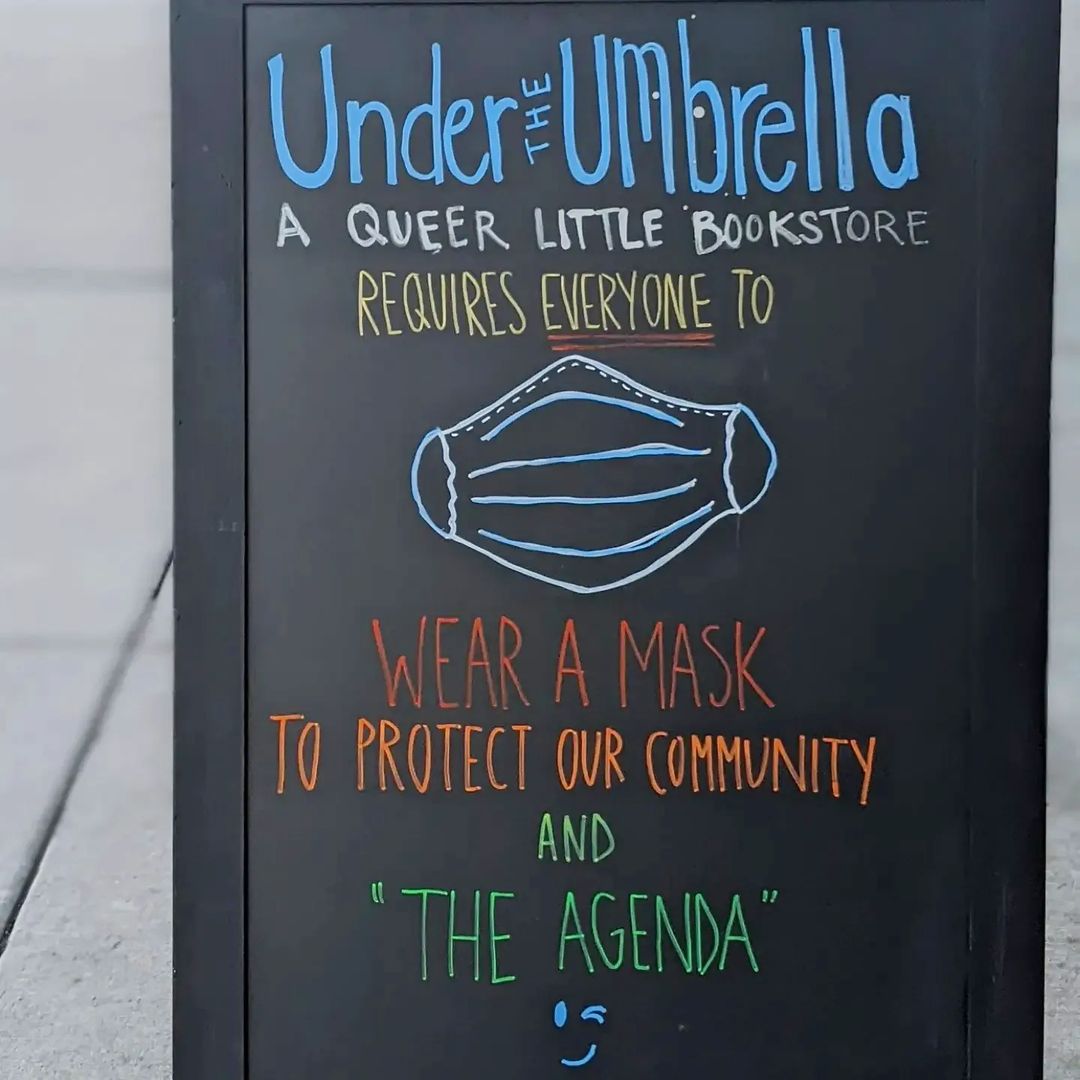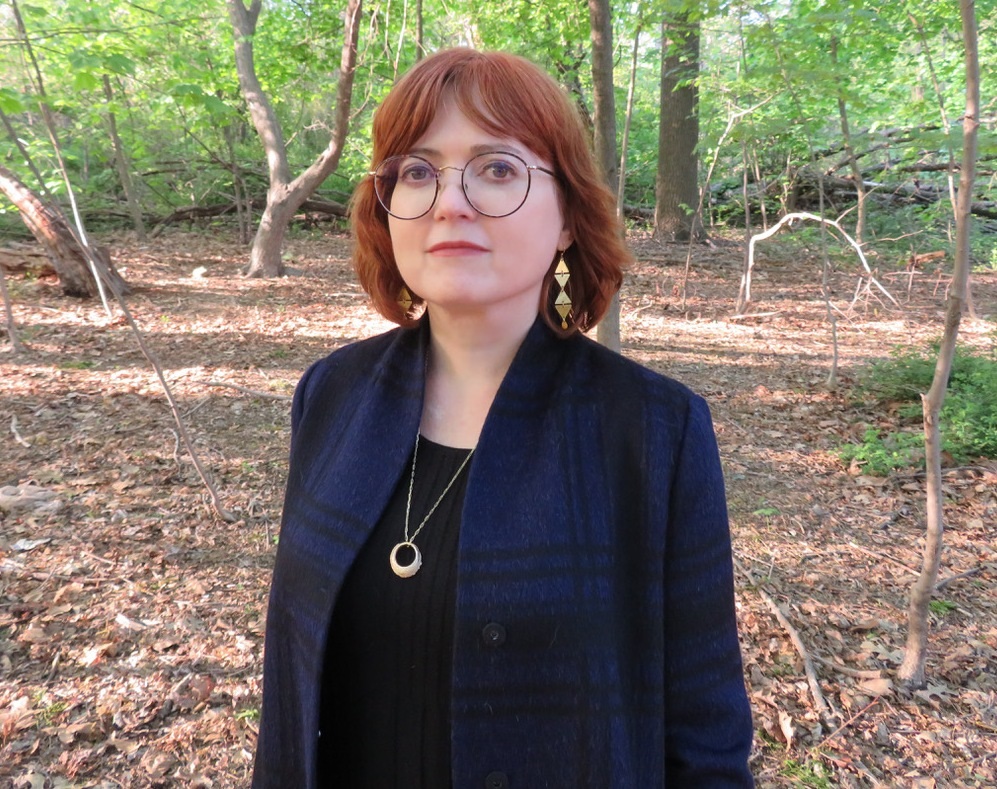 |
| photo: Maximus Clarke |
Maud Newton is a writer and critic. Her first book, Ancestor Trouble: A Reckoning and a Reconciliation (Random House, March 29, 2022), grew out of family history posts on her blog and a 2014 Harper's cover story on Americans' obsession with genealogy. Her work has also appeared in the New York Times Magazine, Narrative, the New York Times Book Review, the Oxford American, Harper's Bazaar, the Los Angeles Times, the Boston Globe, Granta, Bookforum, the Paris Review Daily, the New Republic, the Awl and many other publications and anthologies, including the bestselling anthology What My Mother Gave Me.
Handsell your book to readers:
Ancestor Trouble flowed from decades of wrestling with my own strange and troubled Southern family and broadened into an exploration of history, psychology, genetics, spirituality and the transformational possibilities our ancestors have for all of us.
On your nightstand now:
I'm currently reading Robin Fleming's Britain After Rome, Caitlin C. Gillespie's Boudica, Owen Davies's Grimoires and Elaine Pagels's Beyond Belief (about the Gospel of Thomas), all fuel for the novel I'm working on, which seems to want to have an unexpected historical component.
Favorite book when you were a child:
One of my favorites was E.B. White's Charlotte's Web. My first-grade teacher read the book aloud to our class a chapter at a time, and she and I weren't the only ones sobbing by the last page.
Your top five authors:
Impossible to choose just five, but lately I've been rereading James Baldwin, Nathaniel Hawthorne, Muriel Spark, Jamaica Kincaid and W.S. Merwin. Merwin's late poetry tends to treat the Earth as kin to humans and in that way, it resonates deeply with changes in my own approach to life.
Book you've faked reading:
I was supposed to read Søren Kierkegaard's Either/Or for a college existentialism class but found it tedious. His Fear and Trembling was a more interesting entry point, although I'm still not a fan.
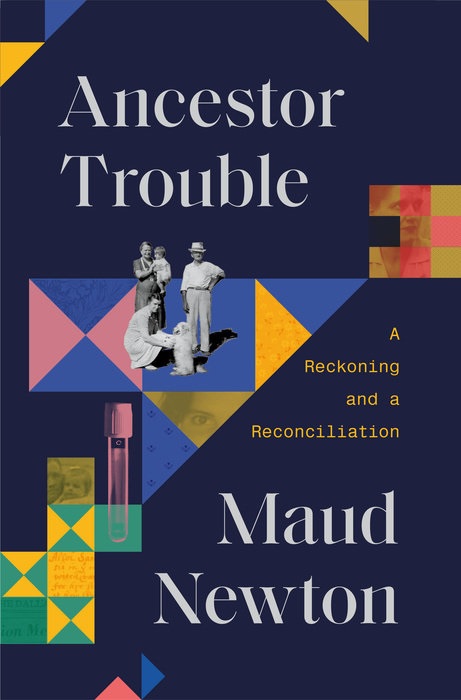 Book you're an evangelist for:
Book you're an evangelist for:
So many! It really depends on the person I'm evangelizing to. Books published over the past year that I can't stop recommending include Honorée Fanonne Jeffers's The Love Songs of W.E.B. Du Bois, Xochitl Gonzalez's Olga Dies Dreaming, Lauren Groff's Matrix, Rebecca Donner's All the Frequent Troubles of Our Days, Kaitlyn Greenidge's Libertie, Sarah Schulman's Let the Record Show and Taylor Harris's This Boy We Made.
Book you've bought for the cover:
I don't think I've ever bought a book for the cover alone, with the possible exception of the 1991 RE/Search zine Angry Women, edited by Andrea Juno and V. Vale, which introduced me to Wanda Coleman, Kathy Acker, Diamanda Galás, bell hooks, Susie Bright, Lydia Lunch, Holly Hughes and so many other mind-blowing artists and activists. The cover depicts a stern, slightly scowling, somewhat bemused or amused contemporary Medusa figure, whose face is surrounded by snakes in place of hair.
Book you hid from your parents:
My parents were strict Christians, one very evangelical and one more fundamentalist, so I hid quite a few books--from Judy Blume novels like Deenie, Forever and Then Again, Maybe I Won't as a preteen to Jay McInerney's Bright Lights, Big City and Bret Easton Ellis's Less Than Zero in my teen years. When I was in college and home for the summer, my mom confiscated my copies of Jean-Paul Sartre's Nausea and Friedrich Nietzsche's Thus Spoke Zarathustra, telling me they would "mess up" my mind.
Book that changed your life:
Nearly every book I love changes me a little bit. One from the past several years is Elaine Pagels's The Gnostic Gospels. Understanding the diversity of interpretations of Christianity in the century or two after Jesus's death, the extent to which the canonized Bible is arbitrary and the ways that Gnosticism reflects and might have been influenced by Buddhist thought has given me an interesting entry point into re-examining the religion of my childhood.
Favorite line from a book:
One passage that stayed with me as I worked on Ancestor Trouble is from Robin Wall Kimmerer's Braiding Sweetgrass: "After all these generations since Columbus, some of the wisest of Native elders still puzzle over the people who came to our shores. They look at the toll on the land and say, 'The problem with these new people is that they don't have both feet on the shore. One is still on the boat. They don't seem to know whether they're staying or not.' "
Five books you'll never part with:
So many! But here are five incredible, impeccable books by writers I know that I'll keep forever: Laila Lalami's The Moor's Account, Maaza Mengiste's The Shadow King, Sarah Smarsh's Heartland, Nicole Chung's All You Can Ever Know and Madeline Miller's Circe.
Book you most want to read again for the first time:
I'd love to be able to go back in time to my college years and read Alexander Chee's How to Write an Autobiographical Novel at that age. I feel like it would have prevented so much uncertainty around writing as a calling for me. Instead I urge the book on every young writer I know.
Books that were important for writing Ancestor Trouble:
To name just a few, I drew from personal memoirs, like Emily Raboteau's Searching for Zion and Dani Shapiro's Inheritance; from books about genetics and epigenetics written for a popular audience, such as Carl Zimmer's She Has Her Mother's Laugh and Siddhartha Mukherjee's The Gene; from scientific histories of heredity compiled for scholars, such as Heredity Produced: At the Crossroads of Biology, Politics, and Culture, 1500-1870, edited by Staffan Müller-Wille and Hans-Jörg Rheinberger; from books on biological inheritance in ancient and modern philosophy, from Aristotle's and Hippocratic writings to Jenny Davidson's Breeding and John Waller's Heredity; books on psychology, including Anne Ancelin Schützenberger's The Ancestor Syndrome, Kay Redfield Jamison's Touched with Fire, Carl Jung's Memories, Dreams, Reflections and James Hillman and Sonu Shamdasani's Lament of the Dead: Psychology After Jung's Red Book; and books on the role of ancestors in spiritual life, including Eternal Ancestors edited by Alisa LaGamma, the works of Malidoma Patrice Somé, Peter Brown's The Cult of the Saints, Francesca Stavrakopoulou's Land of Our Fathers, Ronald Hutton's Pagan Britain, the works of Graham Harvey and Ancestors in Post-Contact Religion edited by Steven J. Friesen.
 Those of you who subscribe directly through us for Shelf Awareness for Readers will notice a new look for today's issue: the e-mail that lands in your inbox gives a lively taste of the complete issue, which is on a custom landing page that readers can click through to and explore at their leisure, focusing on what's of most interest to them. All the features our readers love are still there--reviews of the best books out this week, Book Candy, Writer's Life and Great Reads--and now there are some new features, too:
Those of you who subscribe directly through us for Shelf Awareness for Readers will notice a new look for today's issue: the e-mail that lands in your inbox gives a lively taste of the complete issue, which is on a custom landing page that readers can click through to and explore at their leisure, focusing on what's of most interest to them. All the features our readers love are still there--reviews of the best books out this week, Book Candy, Writer's Life and Great Reads--and now there are some new features, too:









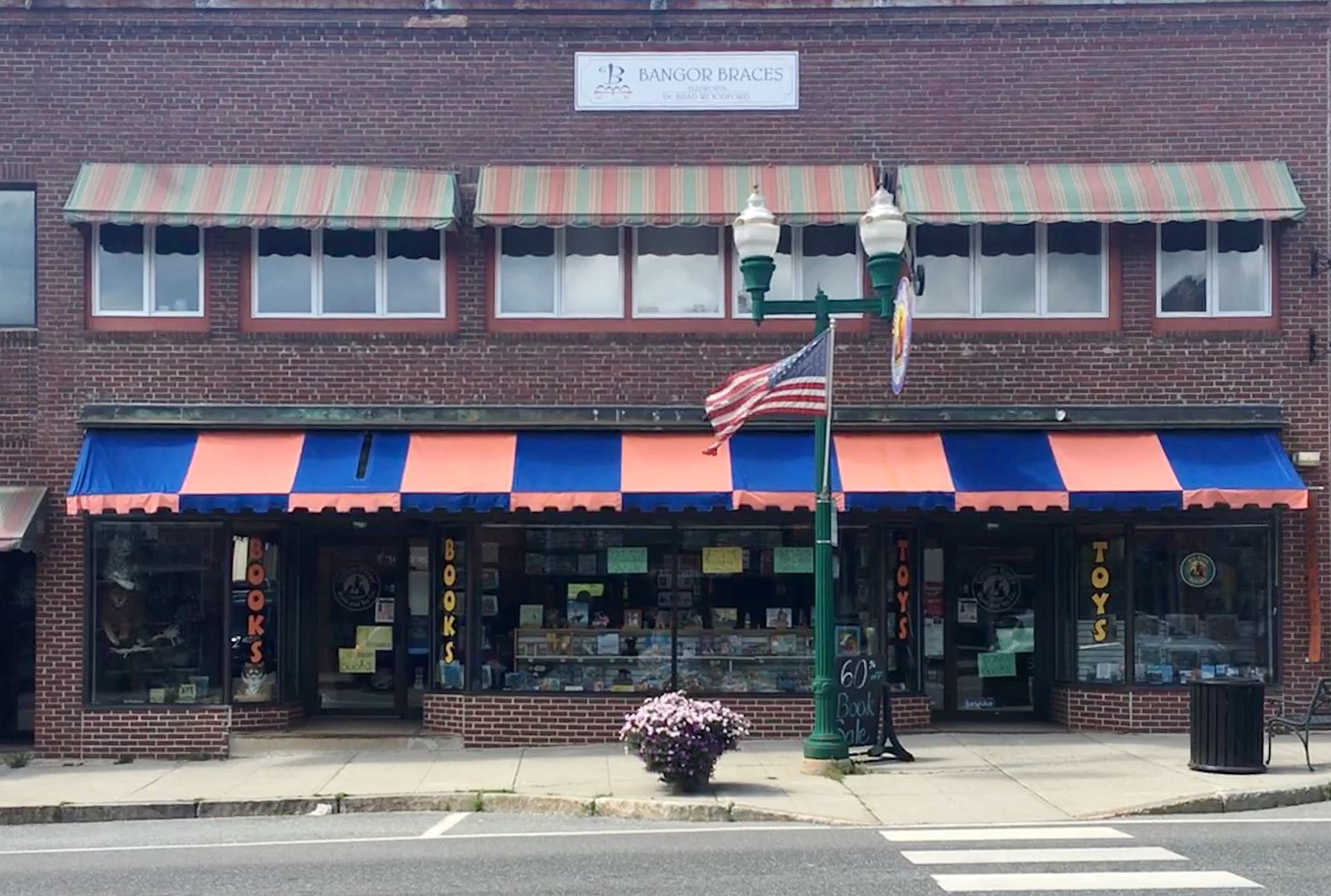 Molly and David DiLena have purchased
Molly and David DiLena have purchased 
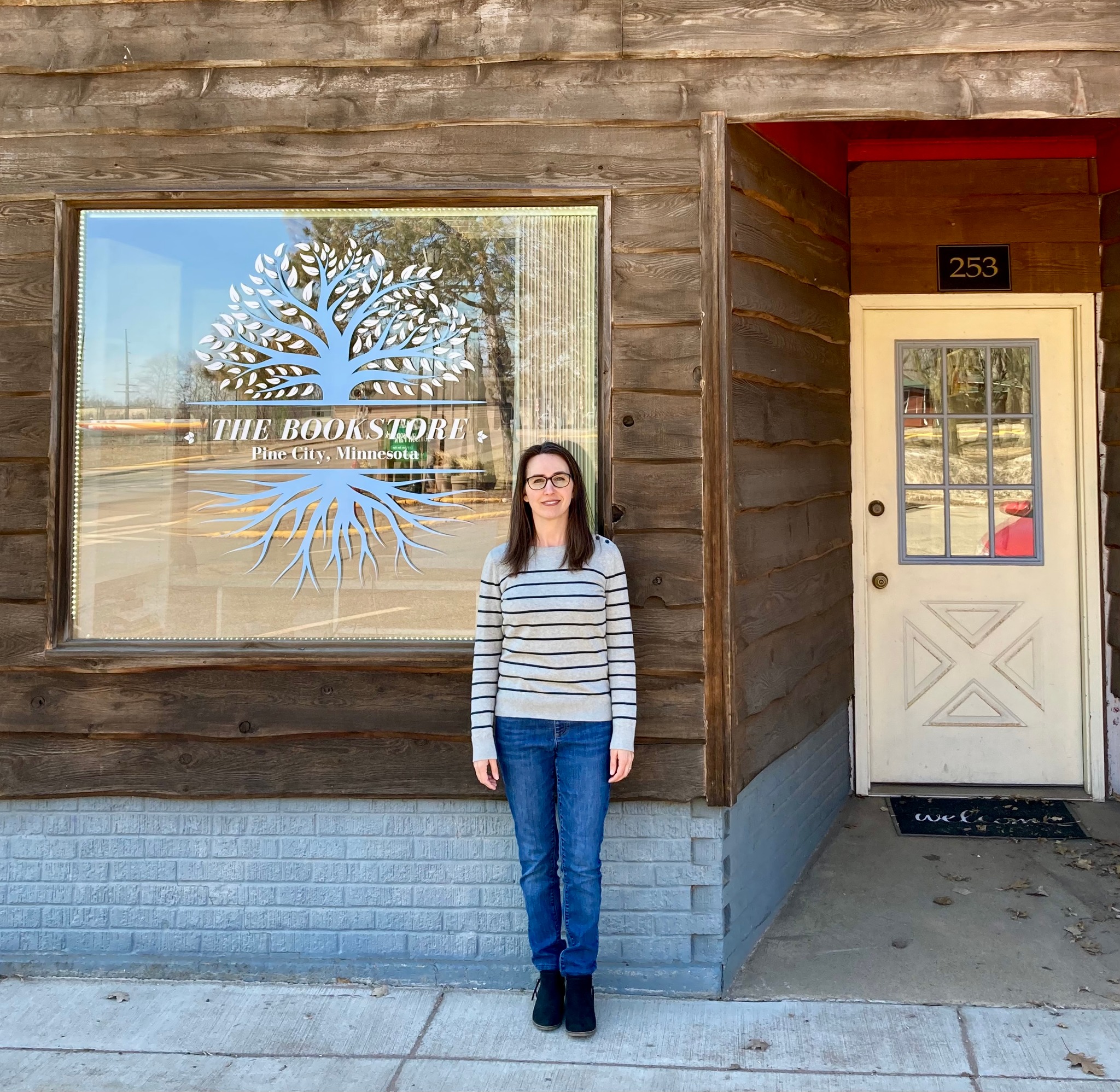


 Barnes & Noble will close its location at 1851 Dell Range Blvd. in Cheyenne, Wyo., on May 15, and reopen in a temporary space at 1400 Dell Range Blvd. later this spring,
Barnes & Noble will close its location at 1851 Dell Range Blvd. in Cheyenne, Wyo., on May 15, and reopen in a temporary space at 1400 Dell Range Blvd. later this spring, 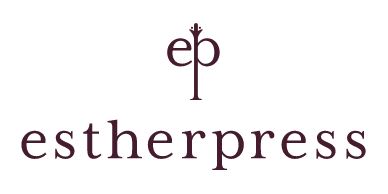 Nonprofit Christian publisher
Nonprofit Christian publisher 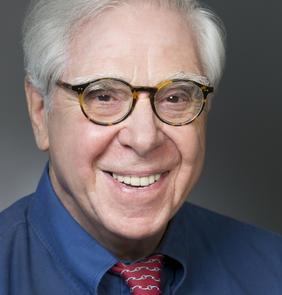
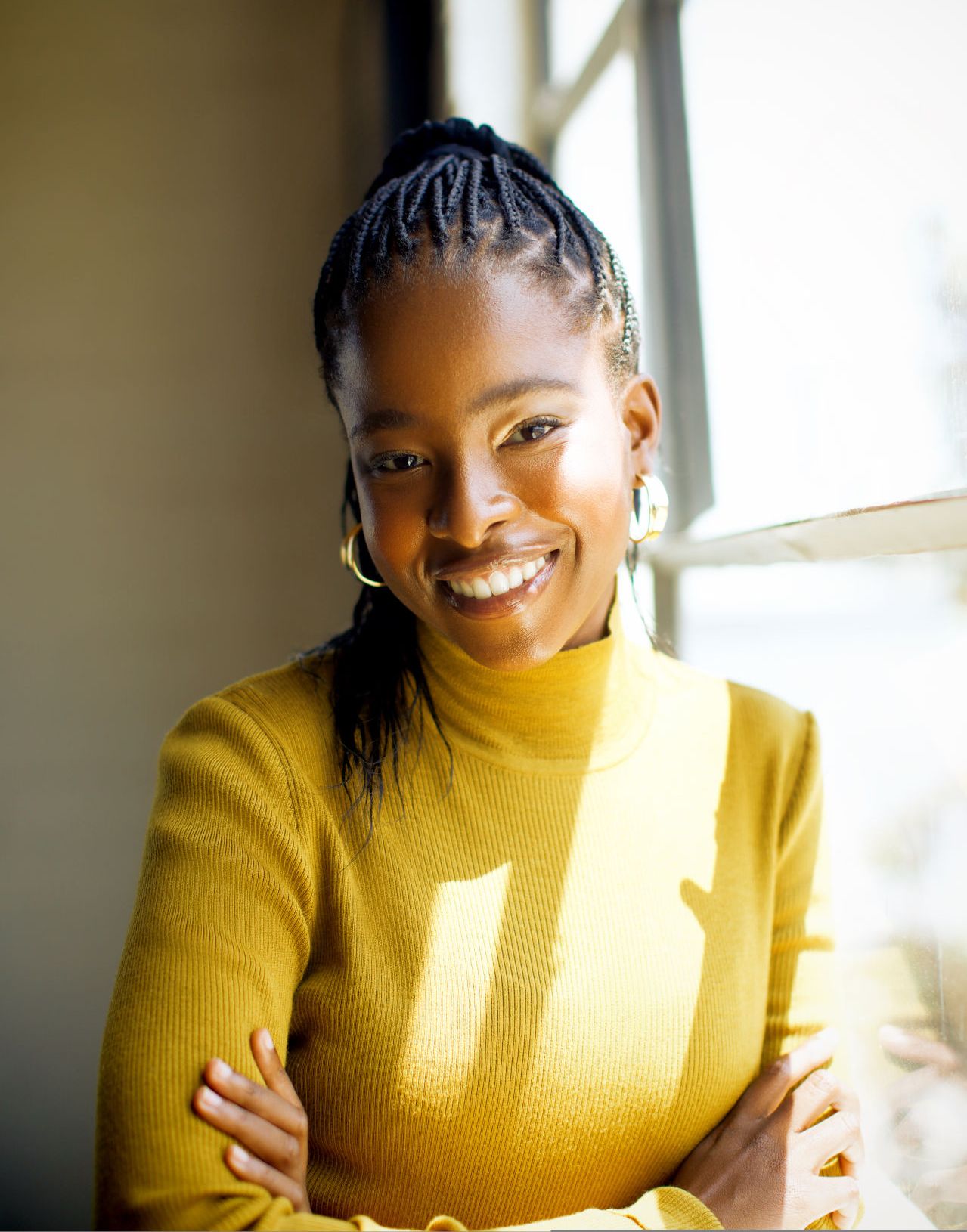
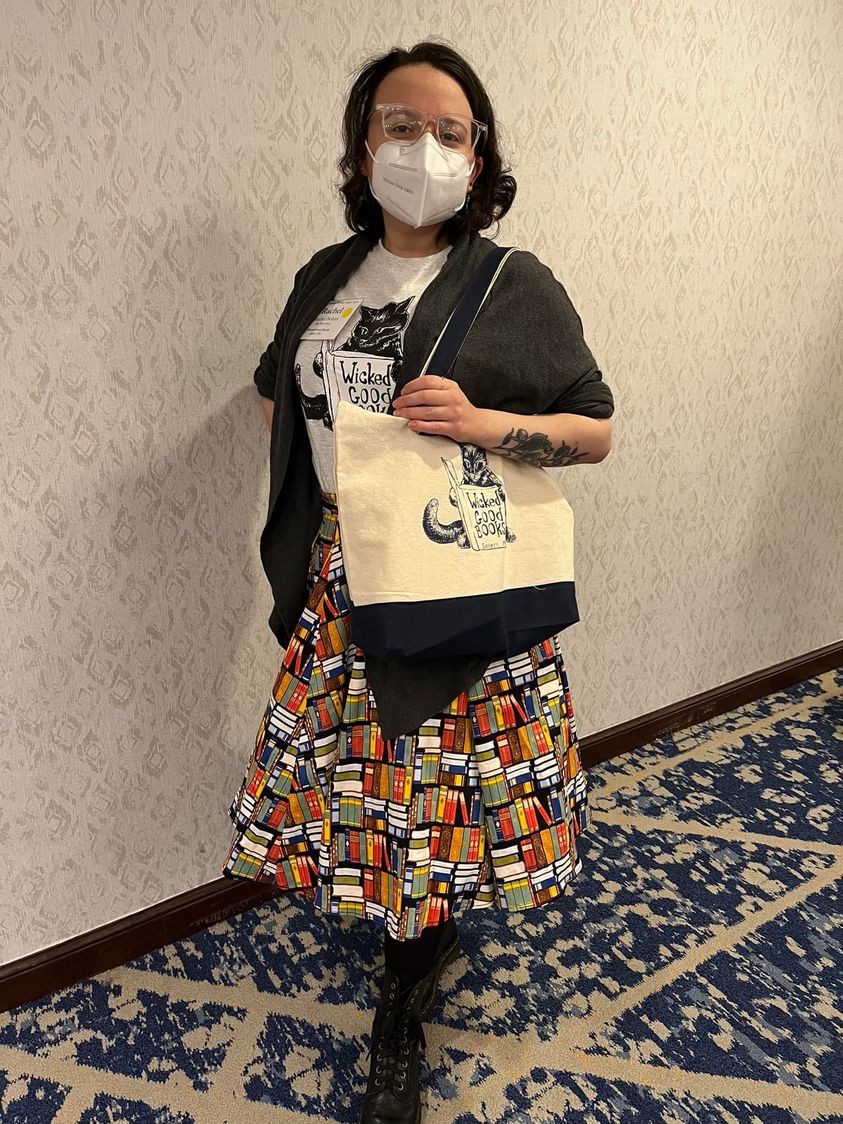 Posted on Instagram yesterday by
Posted on Instagram yesterday by 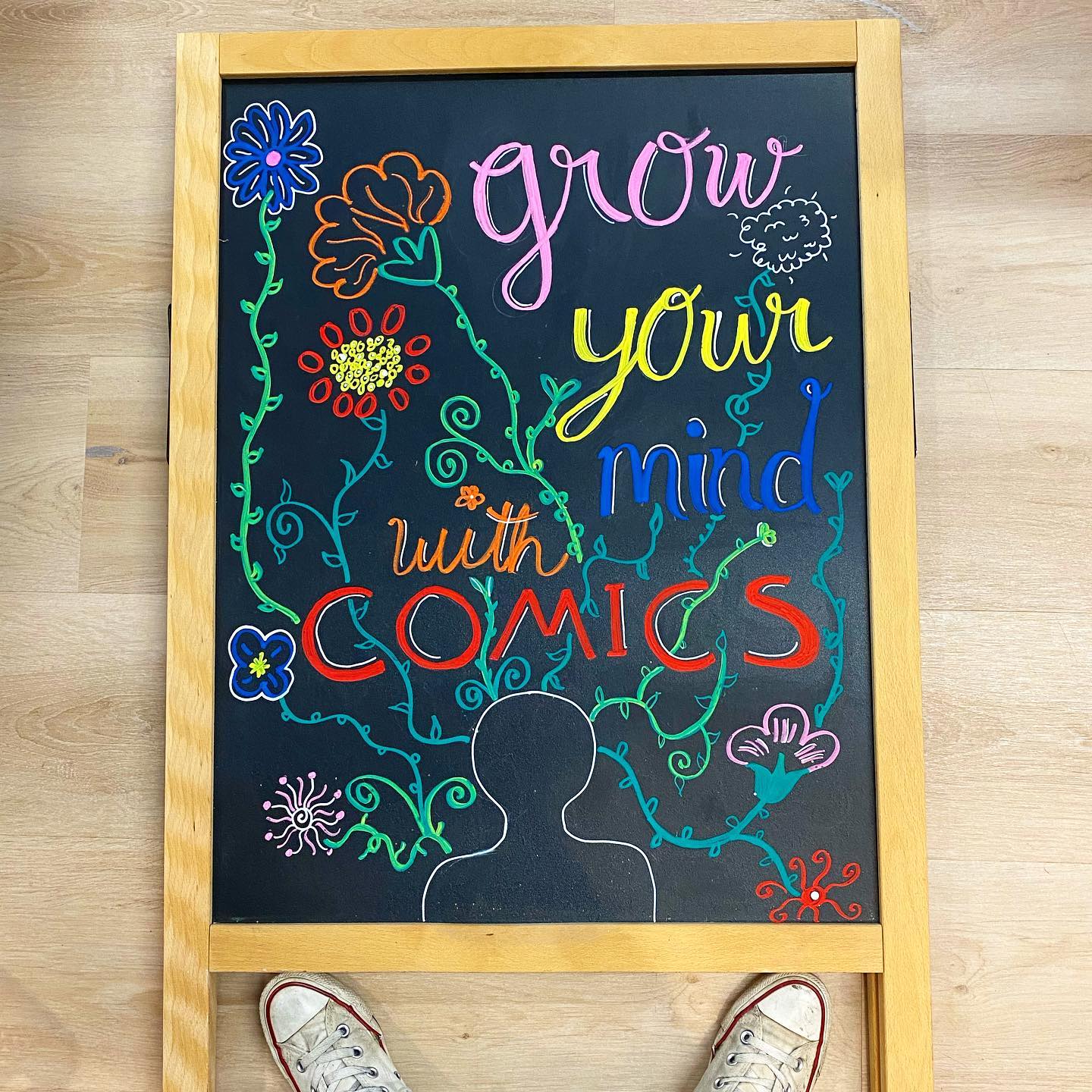
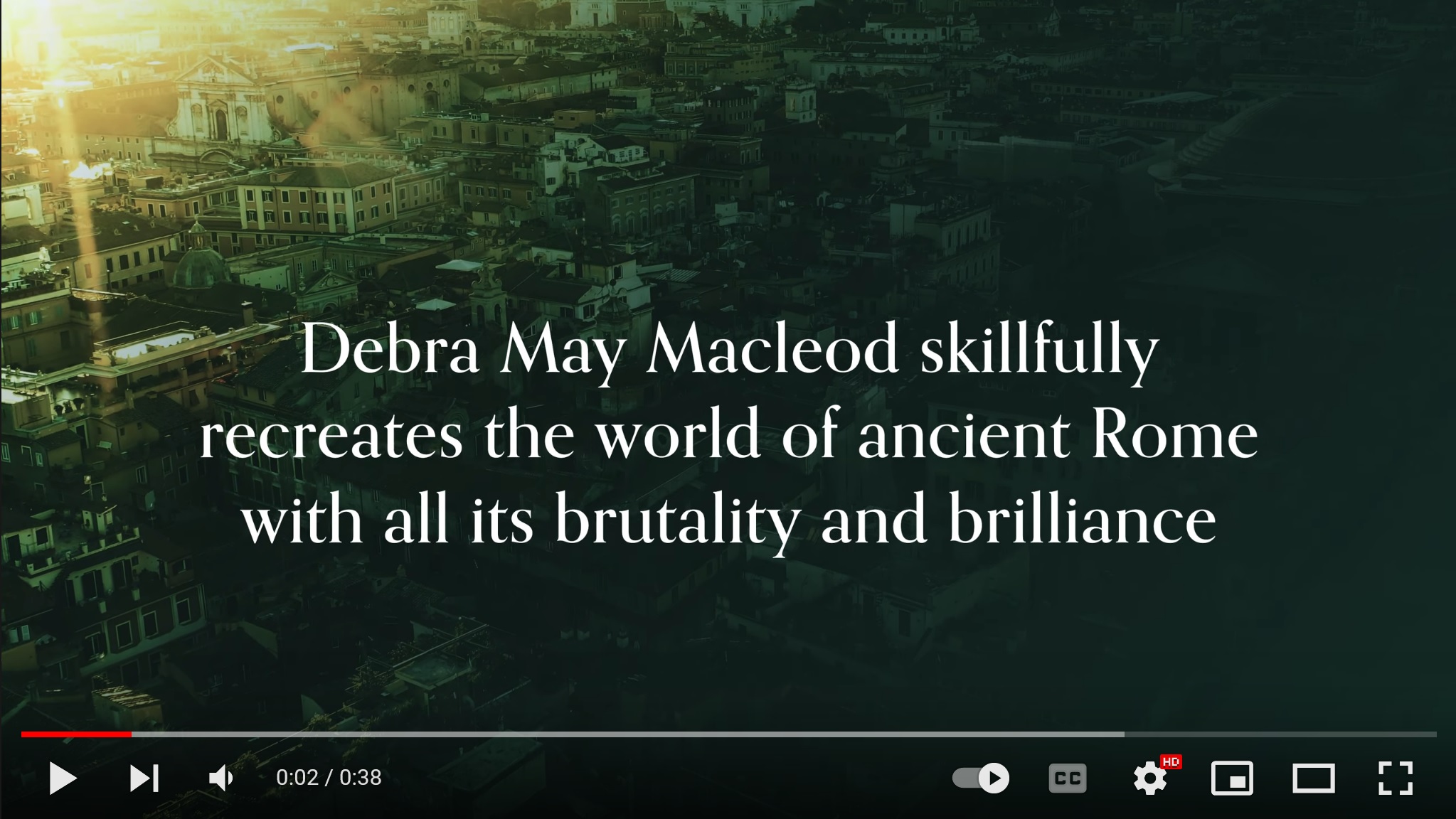 Empire of Iron
Empire of Iron
 Book you're an evangelist for:
Book you're an evangelist for: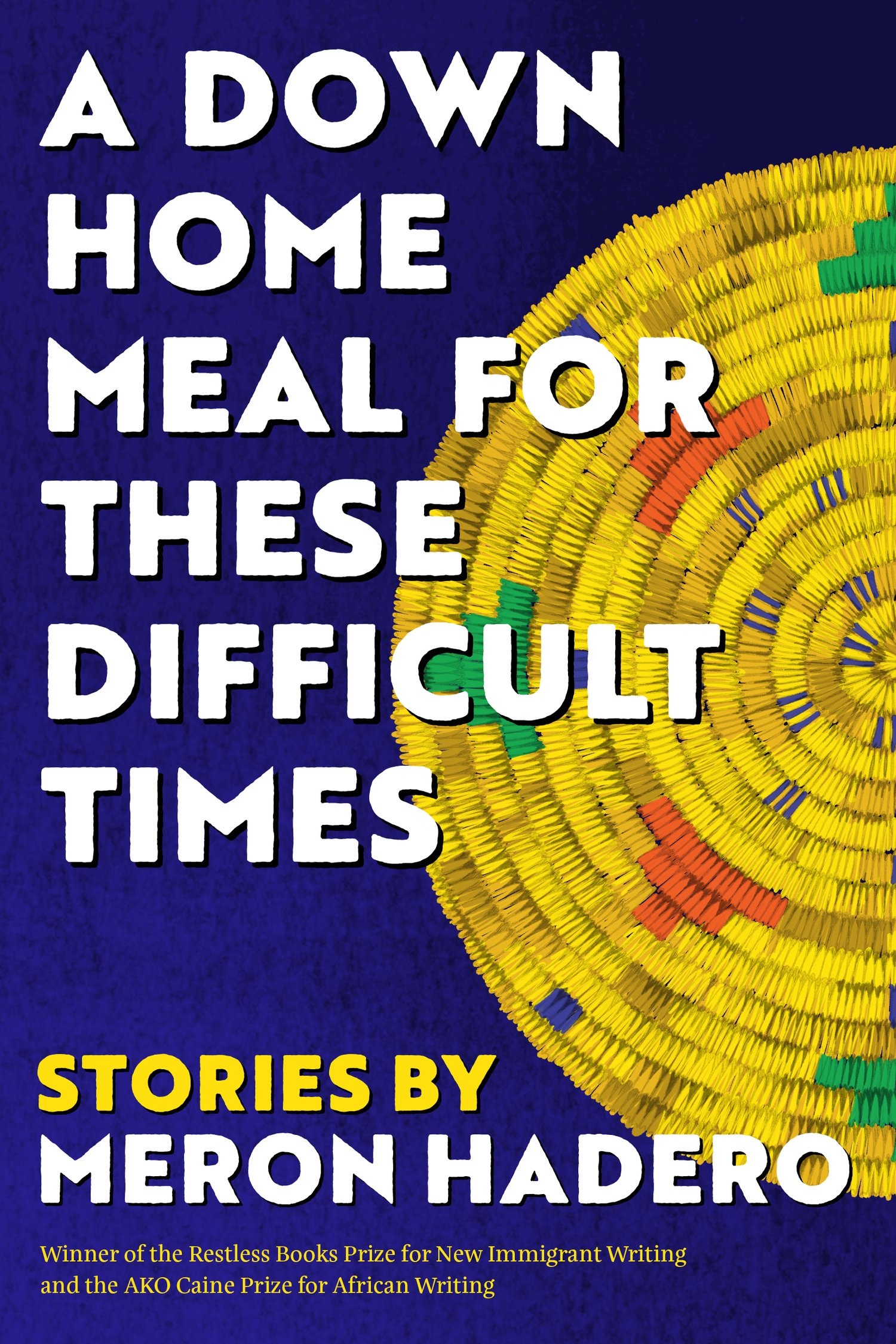 The characters in Meron Hadero's sharp-eyed debut collection of 15 short stories, A Down Home Meal for These Difficult Times, often find themselves caught between worlds. Whether arriving in the U.S. to pursue an education ("Medallion"), visiting family in Addis Ababa and feeling out of place ("The Suitcase"), or conversing with an elderly German neighbor in Iowa ("The Wall"), Hadero's characters are keenly aware of the contrasts between the places they have left and the places they inhabit. As they engage in "this most sacred and difficult task of staying put," they rely on their communities, which are often makeshift but become vital in keeping them grounded where they are.
The characters in Meron Hadero's sharp-eyed debut collection of 15 short stories, A Down Home Meal for These Difficult Times, often find themselves caught between worlds. Whether arriving in the U.S. to pursue an education ("Medallion"), visiting family in Addis Ababa and feeling out of place ("The Suitcase"), or conversing with an elderly German neighbor in Iowa ("The Wall"), Hadero's characters are keenly aware of the contrasts between the places they have left and the places they inhabit. As they engage in "this most sacred and difficult task of staying put," they rely on their communities, which are often makeshift but become vital in keeping them grounded where they are.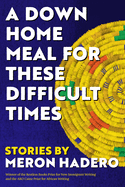

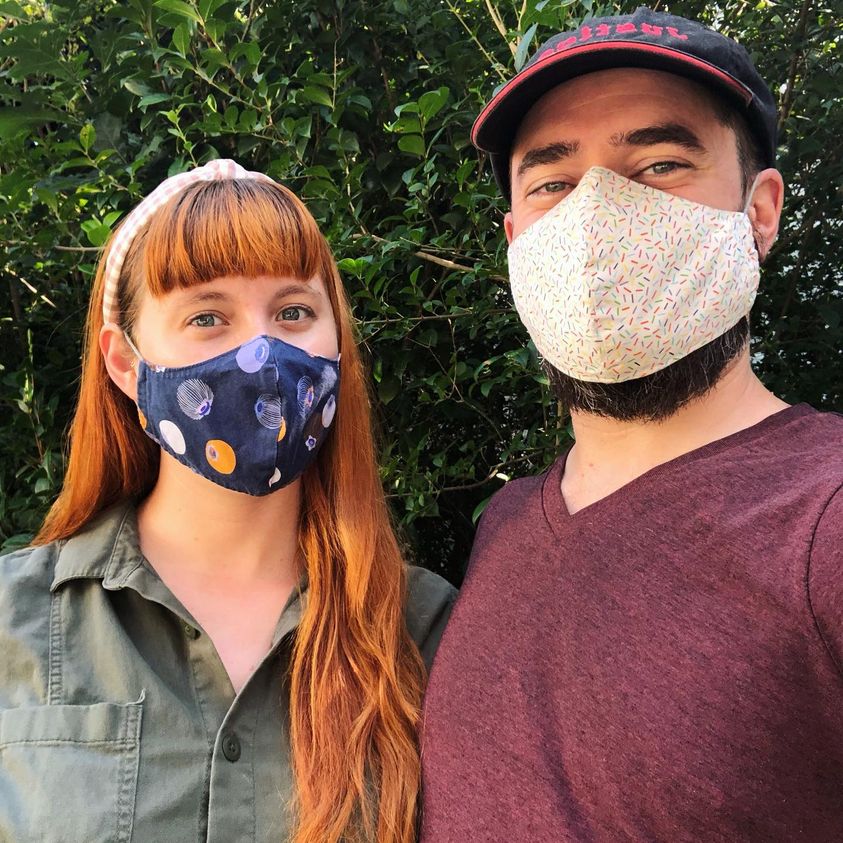 A Novel Idea
A Novel Idea